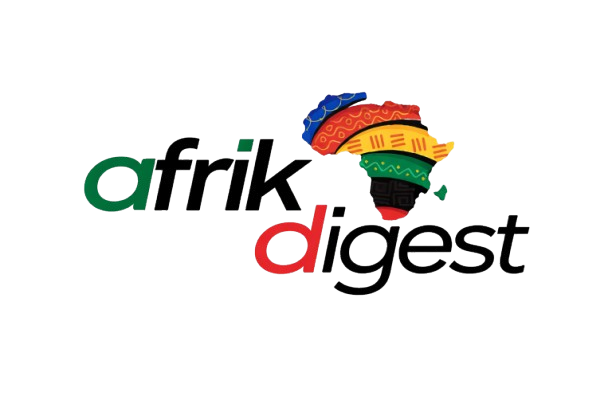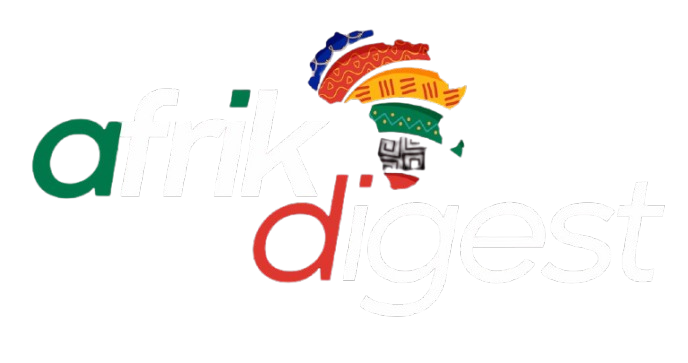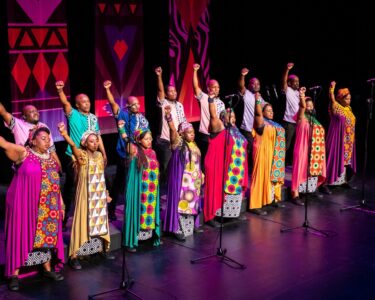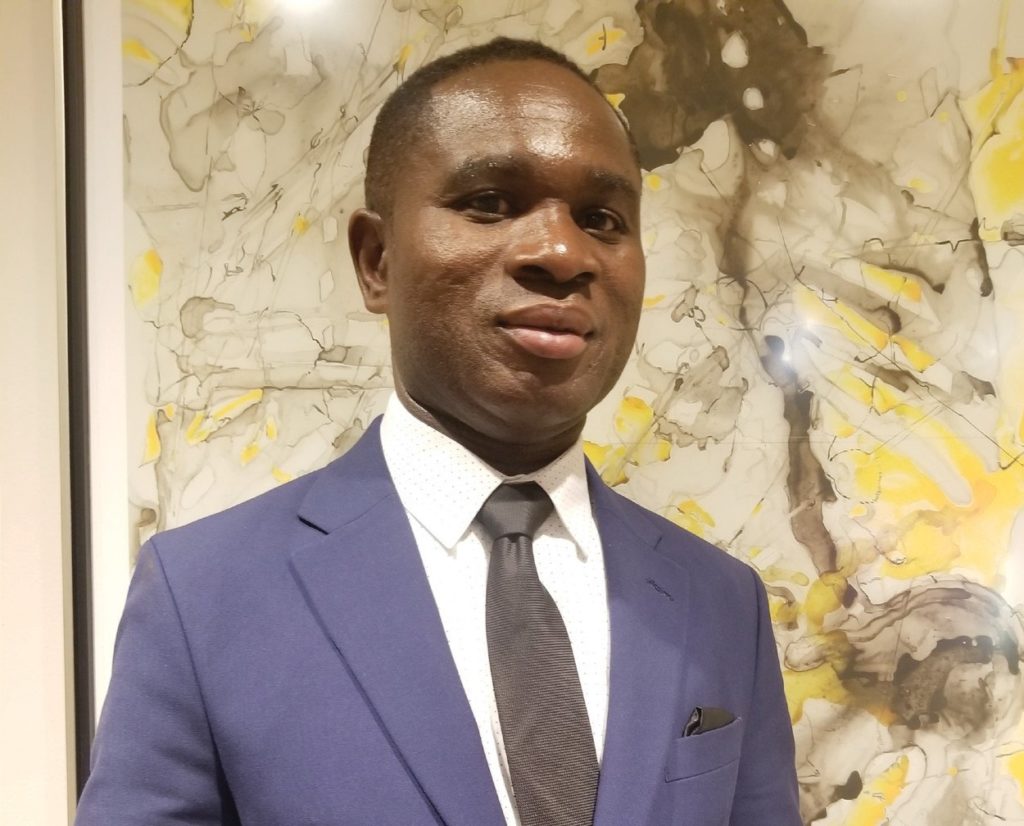
Our youth deserves more attention to keep them mentally healthy – John Abum
Meet Mr. John Abum, a soccer coach and community organizer, who is accomplishing an extraordinary feat in Aurora Colorado. He and his wife, Yayra Abum, along with a team of passionate sportsmen and women have been on a mission to positively engage young people here in Colorado and in some African countries, in competitive soccer. John Abum and his team are not only giving these young people the skills of a lifetime; they are also seeking out opportunities for them and positioning them to win and fulfill a greater destiny. Denver Digest caught up with the couple recently.
What can you tell me about yourself?
My name is John Abum, I am a Gambian by birth and a Ghanaian by origin. So, I call myself a man of many nations because my parents originated from Ghana. My primary and secondary school education was in Gambia. After high school, I proceeded to the School of Public Health, Gambia College. I am the last born of a family of fishermen, and the only one with a college education.
Can you walk us through how you started Bright Stars of Colorado?
Bright Stars of Colorado (BSC) is a 501c3 charitable and educational organization. I am currently the technical director of the Bright Stars of Colorado Soccer Academy and the United Africa Premier Soccer League. It all started out when I relocated to the USA as an international student. I loved soccer as a little boy, playing on the streets of Brufut- Ghanatown, a small fishing town in Gambia.
Here in the US in 2005, my college made up of mostly international students, won the first club state championship for the Western Wyoming Community College. That same year, I had a full scholarship to attend Columbia College Missouri to compete in the NAIA (Intercollegiate Athletics). During my stay at Columbia, I failed my physicals and lost my scholarship due to a knee injury I sustained while I was in the Gambia. Having lost the opportunity to play professionally, I decide to work with the kids in my fishing community, coaching them in soccer and at the same time helping them to stay focused on their education.
What circumstances led you to relocate to the United States?
Being the last born of my parents, my father had made me a promise that if I focused on my education and stayed away from fishing, he would send me abroad after my college. The day my family announced that I would be going to the United States to study and play soccer, I thought my dream of becoming a professional soccer player was on its path to being achieved. I came to the United States of America to attend college and play soccer as well.
At what point did you realize that running a soccer club is what you’d want to do?
I had always wanted to be a professional soccer player and many people in my community thought would. That dream shattered when I failed my soccer physicals at Columbia College. I returned briefly to Africa and decided to help the youth community in Brufut- Ghanatown. We played in teams in which players have not placed according to their age groups. That arrangement didn’t make sense to me, so I resolved to find a solution. I started Bright Stars Club to help those young people play in teams of their age groups. The first name we gave the club was Abum’s International Soccer Academy. I bought soccer uniforms, boots, and other necessary equipment that- they needed to play the game. While helping kids in Africa get organized, I also found that kids within my community here in the United States were facing the same issue. Many of them wanted to play but their parents were not able to pay the fees in Colorado. We decided to establish a similar club in Colorado, but that process has not been easy.
How has the experience of your injury and your trun cated dream impacted your life ?
It was tough at first, but I worked my way out from it. After I lost my scholarship, it felt like my world had come to an end. It was difficult hearing from the doctor that I would no longer be able to play for the college because of my knee injury. The experience made me more determined to do my part for our young ones. It inspires me to mentor many young men here, and in Africa. I believe that our youth deserves more attention than we give them. I had been a youth leader as a young man growing up in the Gambia I was the youth president of my church parish and served as an active community youth leader for years. Today we have a branch of Bright Stars in Ghana, playing in the Ghana third-division league and another branch in the Gambia.
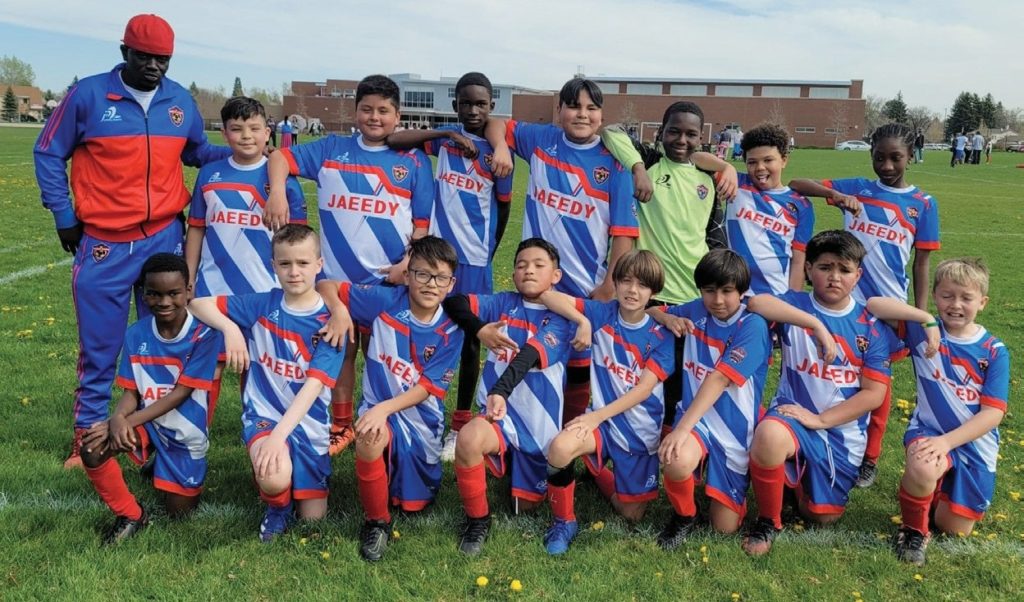
Can you talk more on the United Africa Premier League ?
As I mentioned earlier, starting a soccer club is tough so we started a youth soccer program instead. It became the Bright Stars of Colorado. Afterward, our 7-member team, decided that we needed to have a separate program to keep our young adults physically and mentally healthy, and out of trouble all at the same time. Soccer is a universal language and as an African, I believe that this is one thing that can bring people together. We see this expressed in the Africa Cup of Nations and the World Cup. This is how the United African Premier League – UAPSL, the first of its kind in Colorado, came about. The league aims to create an elite soccer team for Africans and communities of African descent. Here in Colorado, communities have their own leagues but none of them is a continental African league.
In 2019, we put up a plan to initiate a league for all our Africa communities in Colorado and other states. We are hoping to expand the league to other African communities in the USA. We are already talking with communities in New York and Georgia.
The goal of UAPSL is to expand its membership to accommodate additional teams from other communities other than the African community. UAPSL is hoping to give an opportunity to all young people who wish to continue to play and reach their highest potential as well as those that wish to play for the fun of the game.
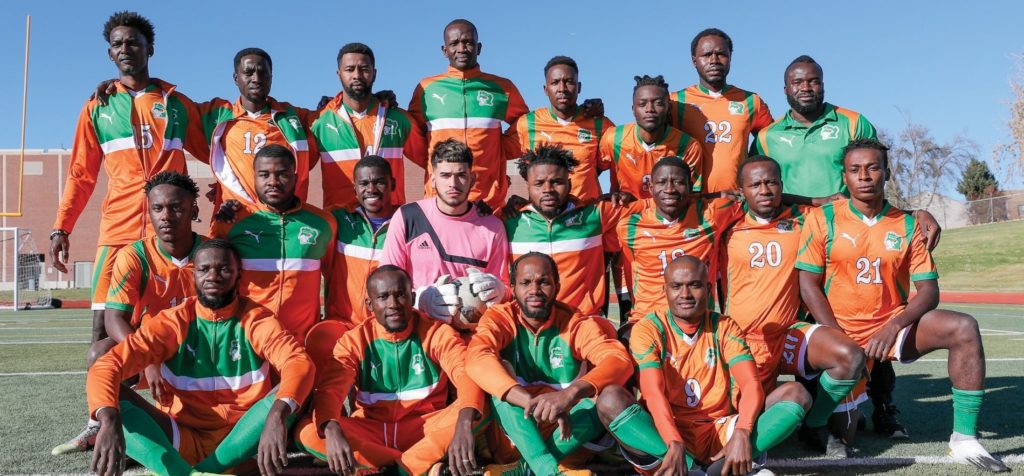
Can you walk us through how you have progressed in your soccer career in Colorado?
As I mentioned earlier, my parents wanted me in the healthcare field, so I enrolled in the School of Public Health- Gambia College, but I had developed a love for the game since my childhood. When I was not able to play college soccer, turning to my community gave me courage. When we started Bright Stars of Colorado Soccer Academy, most of the kids were Rwandan refugees and a couple of others came from the Hispanic community, but most of the kid players are of African origin.
I imagine there are conflicts sometimes. Where do you see most of the conflicts and how do you deal with them?
So long as we are alive, there are bound to be conflicts; it depends on how we approach the conflicts. As members of a community, we must know how to approach people and situations. We had many obstacles when setting up the program, within and outside the community, but we figured out ways to resolve them.
What do you think other people should know about your organization?
We want people to know that we are here to create the American dream for so many kids. We are a non-profit organization. We help kids to connect to colleges through soccer, train them to be leaders in their different communities, and engage them positively so that they can stay out of trouble. There’s a lot of work to be done and we need funding to stay on top of it. We need help from organizations within and outside of our community, to be able to fund our programs. We have been soliciting funds within the African community churches, African stores, and social gatherings.
What has been your key driving force?
My family and my team of coaches are my driving force. I work with a team that engages with all their heart to make sure the league and the club run smoothly. My wife is the number one supporter of our programs. She has been on my side from the very first day we started. Mannue Giplaye is the head of high school boys of Bright Stars of Colorado Soccer Academy. He has been a great force behind the club. Coach Philip Alvaro and Justine Mendy have also been strong pillars of this program.
The pandemic has been devastating for a lot of businesses and sporting clubs like yours, how have you been able to navigate it?
Yes, the pandemic has affected every community and business. It has also had a big effect on our program. I just thank God that we are almost at the end of the pandemic. We had to pause most of our activities as parents were not registering their kids. Our sponsors also stopped funding our programs. It has been a rough road but when you have great people around, you will succeed. My wife Yayra Abum has been a great energizer in this journey. She has supported me with the last penny in our bank account. I also get enormous support from Coach Phillip Alvaro who has been with us from the time I brought up the idea of a soccer program. Coach Mannue Giplaye has been the master planner of all our programs, and all of us are doing this for the love of the game.
What is the most difficult decision you had to make as the founder of a soccer league?
In life, we make difficult decisions at times. During the formation of this program, I let many good people I came across go because I wanted to make sure this program worked. I let some good friends go and those are hard decisions to make. If you want to succeed in life, things like that will happen and you must make those hard decisions. During the first season of the league, we decided to ban a team from the league. It was hard for me and my team, but we had to do that for the benefit of the league.
What do you do during off seasons?
During off Season I spend more time off the field with my family. I try to go out for vacation not thinking about soccer, but as a soccer fanatic, I cannot readily stop thinking about it. Also, at the end of each seasonal year, we have a UAPSL banquet where all countries are represented. The event brings all our teams together. I’m using this opportunity to invite all sports stakeholders and members of the public to help us do more in our community through soccer. We need sponsors for this league to grow as our numbers increase every year.
What have been your challenges?
The biggest challenge for us is funding. As the only African community soccer academy, it is hard for organizations to support us. Securing fields to train or play games is always a problem. I have been in many fields and their offices in Aurora, but we are yet to find a place we can call home. The fields we train on this season, will be hard to get for the next season because the city takes it and rents it to a different club, leaving our kids mostly crushed.
To donate or sponsor an event, please contact us at League@ uapsl.com or bstars@bscsoccer. org. You can learn about United Africa Premier Soccer League and our programs at www.uapsl.com and www.bscsoccer.org.
